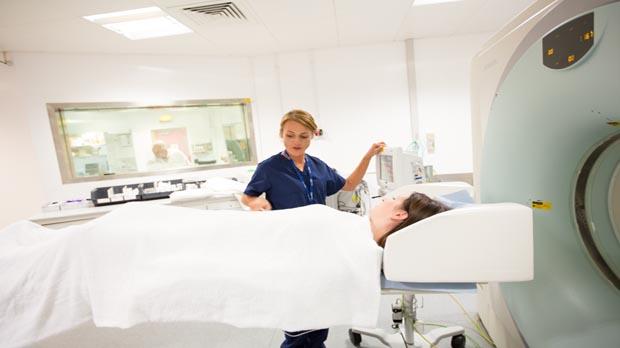
Last year in the UK over 60,000 cancer patients enrolled on clinical trials aimed at improving cancer treatments and making them available to all.
This trial looked at a new type of scanner to see if it could help family doctors (GPs) decide more easily which moles may be melanoma skin cancer.
If you are worried about a mole on your body, you should have it checked by your GP. Your GP may decide that you should see a skin specialist (dermatologist). But it can be very difficult for GPs to decide who may have a melanoma. If they referred everyone who came to see them to a specialist immediately, the system would get jammed and those needing urgent appointments wouldn't be able to get them.
This trial looked at a system called MoleMate. Researchers thought it may help GPs to spot melanoma more easily. If this was so, some people might not need to see a dermatologist unnecessarily. But, if it shows your GP that you do need an urgent referral, it could mean that you start treatment for melanoma sooner.
The MoleMate system is a hand held scanner, linked to a computer. It scans features in moles and takes pictures. The computer asks the doctor questions about these pictures. It then advises whether or not you should see a dermatologist.
The aim of this trial was to see if the MoleMate system helped GPs to make more appropriate referrals for suspected melanoma.
The trial team found that the MoleMate system didn’t help GPs make more appropriate referrals to dermatologists.
The trial recruited 1,297 people. Some people had more than 1 mole so this made a total of 1,573 moles that were checked.
It was a randomised trial. Everybody who took part was put into 1 of 2 groups
The researchers looked at the number of referrals that were appropriate. They considered a referral was appropriate if the dermatologist decided to take a tissue sample (biopsy) of the mole, or if it needed to be regularly checked. The number of appropriate referrals was about the same in both groups.
Both doctors and patients thought very positively about the MoleMate system. Overall this resulted in a higher number of referrals by doctors who used the system than those who used the standard way. But the trial team concluded that there was no evidence that using the MoleMate system improved the appropriateness of referrals for suspected melanomas.
We have based this summary on information from the team who ran the trial. The information they sent us has been reviewed by independent specialists ( ) and published in a medical journal. The figures we quote above were provided by the trial team. We have not analysed the data ourselves.
) and published in a medical journal. The figures we quote above were provided by the trial team. We have not analysed the data ourselves.
Please note: In order to join a trial you will need to discuss it with your doctor, unless otherwise specified.
Dr Fiona Walter
Addenbrookes Hospital
Biocompatibles UK Limited
MedX Health (holds trademark for MoleMate)
NHS Cambridgeshire
NIHR Clinical Research Network: Cancer
University of Cambridge
If you have questions about the trial please contact our cancer information nurses
Freephone 0808 800 4040

Last year in the UK over 60,000 cancer patients enrolled on clinical trials aimed at improving cancer treatments and making them available to all.